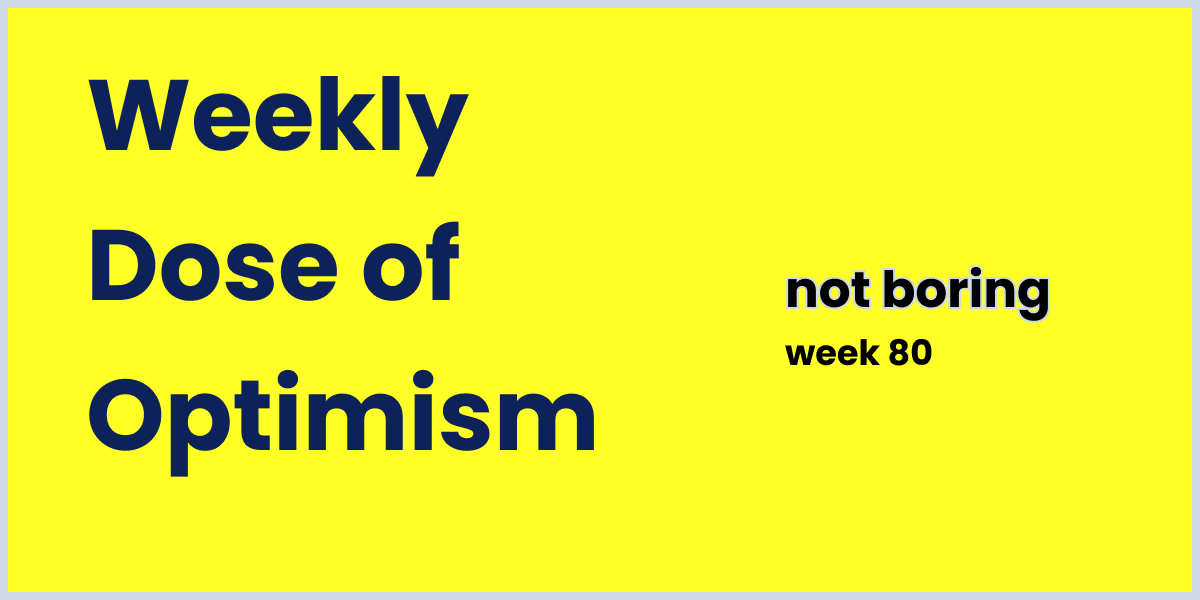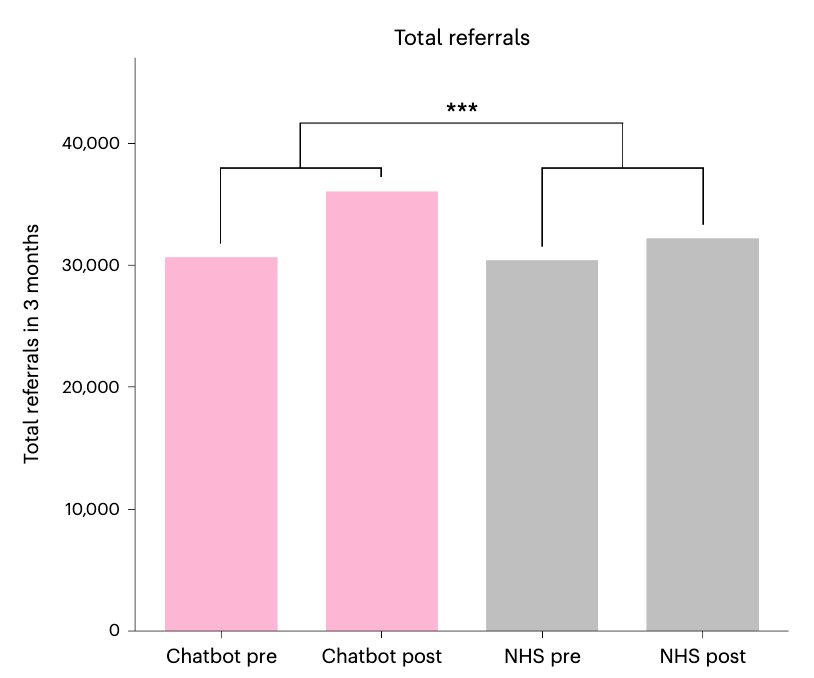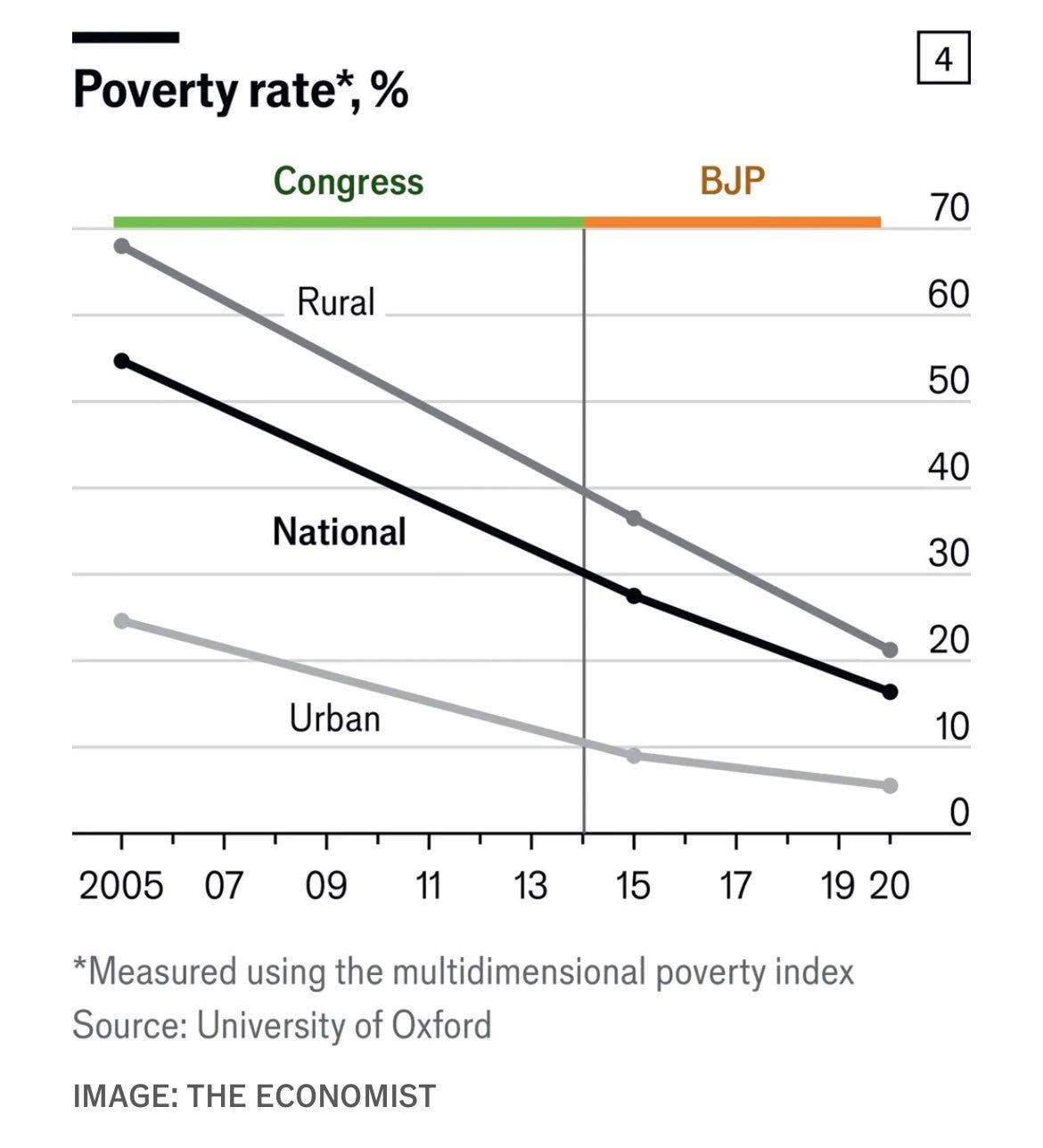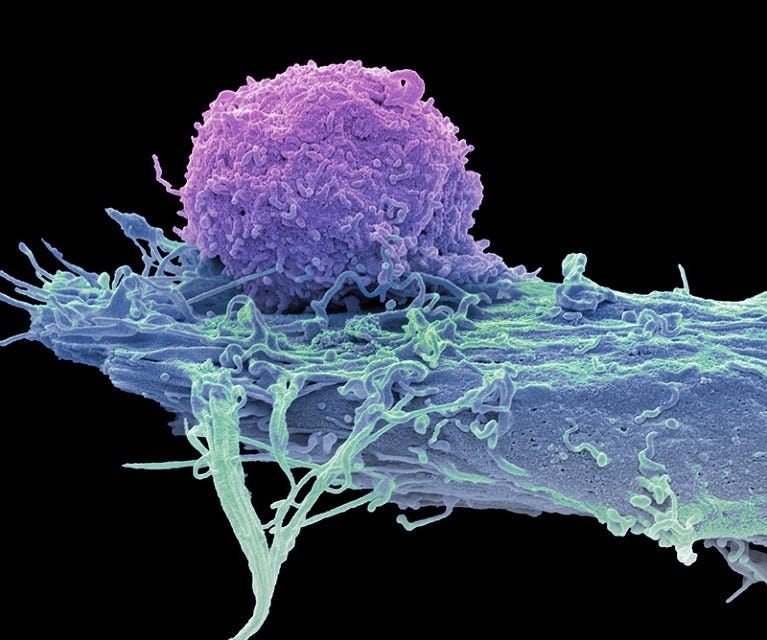Not Boring by Packy McCormick - Weekly Dose of Optimism #80
Weekly Dose of Optimism #80Vesuvius Challenge, OSV Fellowship, Mental Health Chatbots, India, CAR-T,Hi friends 👋, Happy Friday and welcome back to our 80th Weekly Dose of Optimism. It’s Super Bowl weekend here in the U.S. and this year that means one thing: Taylor. We’re all about sharing unsolicited opinions here at Not Boring, so here’s mine. I’ve enjoyed the Taylor Swift storyline this football season. It adds a new, fun, and ultimately harmless dimension to the game. Football is entertainment, and I couldn’t think of a more entertaining subplot than one of the league’s most notable players dating one of the most famous people in the world — and that famous person lugging herself to places like Kansas City, Buffalo, and Baltimore every weekend to her cheer on her man. So yeah, I’m taking the over on 5.5 Taylor Swift appearances during the Super Bowl and I’ll be enjoying each one. Now, let’s get to it. Today’s Not Boring is brought to you by… Plaid You may know Plaid as the company that lets you safely and quickly connect your bank to your favorite finance apps. When their original product dropped back in 2013, it unleashed a wave of fintech innovation—think Venmo, Chime, and SoFi. Ten years later, Plaid has expanded to support thousands of digital finance apps with onboarding customers, fighting fraud, moving money, and making better risk decisions. Now, Plaid just dropped its Future of Lending report, with original insights from 400 lenders and 2,000 borrowers. The upshot: cash flow data is going mainstream. Lenders need it to manage credit risk and offer competitive products, and consumers are willing to share it to qualify for better terms. The report is free and, tbh, a pretty compelling read. If you’re a founder, builder, investor, or just curious about where the lending industry is headed—do yourself a favor and spend a few moments diving into the Future of Lending report. (1) Can AI Unlock the Secrets of the Ancient World?
On Monday, Nat Friedman announced that the Vesuvius Challenge had a winner. Three winners actually — Youssef Nader, Luke Farritor, and Julian Schillinger. The trio solved the ancient problem of the Herculaneum Papyri, a library of scrolls that were flash-fried by the eruption of Mount Vesuvius in 79 AD. The scrolls, or a portion of them, are now readable for the first time in over 2,000 years, unlocking ancient knowledge of the world that was previously unknown. The team cracked 15 columns of text at the very end of first scroll. It appears that the text was likely authored by the Epicurean philosopher Philodemus and covers things like music, food, daily pleasures, and some apparent dislike for the Stoics. Classic ancient age stuff. Ashlee Vance of Bloomberg covered the whole story for Bloomberg — the challenge’s origins, advancements in 3D and AI technology, the global community of enthusiasts involved in the challenge, and why it’s even important in the first place. The whole story is worth a read — it’s able to turn a seemingly nerdy, niche story into an exhilarating one. And there’s more to come… the Vesuvius Challenge’s 2024 goal is to read 90% of the text from all four scrolls, and Elon tweeted that the Musk Foundation will support the effort. We love this type of citizen science. It has everything: underdog stories, fierce competition, big paydays. It feels like we’re watching sports. We should celebrate these winners like they just won the Super Bowl.
Nat Friedman used his wealth to fund the Vesuvius Challenge — sparking young, technical folks to take on a ambitious but otherwise non-lucrative project in the hopes that it would inspire a generation of builders to take on hard challenges. Our friends over at O’Shaugnessy Ventures are stealing a page from that scrollbook with their O’Shaughnessy Fellowships program. The program is designed to encourage talented individuals to take a one-year flyer on a project of their choosing. The $100K is meant to alleviate the financial pressures of taking on a new project and lessen the opportunity cost of dedicating yourself to a project for a full year. Peter Thiel has proven out the feasibility of this model with his Thiel Fellowship — producing success stories like Dylan of Figma, Vitalik of Ethereum, and Josh of DoNotPay. It seems like the combination of deep networks, financial support, and a long-term vision attracts a certain type of builder. We think that same magic could play out at OSV. We have no direct affiliation with OSV other than being massive fans of theirs and their approach to supporting talented peoples’ life’s work. If we want a modern Renaissance, we need modern Medicis. The more experimentation the better! Applications for this year’s Fellowship are now open. (3) Closing the accessibility gap to mental health treatment with a personalized self-referral chatbot Habicht et al in Nature
A new study has shown that AI chatbots may close the accessibility gap in mental health treatment. The observational study analyzed data from 129,400 patients within England's NHS services, demonstrating that AI chatbots could significantly increase patient referral volume, particularly among minority groups. Services using the chatbot saw a 15% increase in overall referrals, with notable spikes among nonbinary individuals (179% increase) and ethnic minorities (29% increase). Referrals, in this context, are when people are directed or recommended to mental health services for further assessment or treatment. If you don’t seek help, you often times don’t get help — which is why this referral step is so important. In the U.S. alone, 1 in 5 adults live with a mental illness. But due to a variety of obstacles — stigma, access to care, education — many folks go untreated. Part of the issue is the current system to address mental health issues early are not built for the size or the particular challenges of the issue today. AI chatbots offer a solution here in that they’re infinitely scalable, easily accessible, and can be anonymous. Plus, at least for now, it’s a great example of machines doing what they do best (handling huge volume) and handing off to humans to do what they do best (treat people). (4) India’s Growth This chart has been going viral on X this week. We’ve written a fair amount about India at Not Boring. In part because of its rapid growth and modernization. Any country that’s experienced such rapid change and improvement deserves further analysis. And in part because that growth and modernization is happening at a scale that is hard to fathom. The country has a population of about 1.4 billion, making it the most populous country in the world. So when you see charts like the above that show a 20% drop in poverty rates in 10 years, that means that nearly 280 million people have been lifted out of poverty. That’s like the entirety of Germany, France, the UK, and Italy being raised out of poverty in a decade. And the good times appear to keep on rolling for India. While global growth is starting to slow, India’s economy is still growing at over 6%. A portion of the credit must be given to Prime Minister Modi — a somewhat controversial character — whose economic and governmental initiatives have instilled investor confidence in the region. The country also has all the basics, too: a young, ambitious, and educated population, a growing manufacturing base, improving infrastructure, and optimism. Chalo! (5) Turbocharged CAR-T cells melt tumours in mice — using a trick from cancer cells Asher Mullard for Nature Is it just me or are we writing about new CAR-T every week now? As a reminder, CAR-T cell therapies involve genetically modifying a patient's T cells to express chimeric antigen receptors (CARs) that specifically target and eliminate cancer cells. Now, researchers have developed a new CAR-T cell therapy using a mutation from cancer cells, enhancing their ability to destroy tumors in mice without turning cancerous themselves. The new methodology enhances the effectiveness of CAR-T cells by incorporating a specific mutation, originally identified in cancerous T cells, into the CAR-T cells themselves. This mutation involves the CARD11–PIK3R3 protein, which significantly boosts the CAR-T cells' ability to infiltrate tumors and sustain their cancer-fighting activity over time. By borrowing this trait from cancer cells, the modified CAR-T cells become more potent and durable in their response, allowing them to effectively target and destroy tumor cells, even in cases where traditional CAR-T cell therapies have failed. The mutated CAR-T cells showed significant potency against both blood and solid tumors, potentially improving treatment outcomes in those specific areas. We’re still just working with mice here, but this methodology could offer new hope for treating cancers that are resistant to current treatments. Cancer is incredibly challenging to beat. Siddhartha Mukherjee calls it “The Emperor of All Maladies.” But we’re heartened by the variety and sophistication of new approaches scientists are throwing at the emperor, from CAR-T to screening. Yesterday, our friends at Ezra announced $21 million in fresh funding to make early detection the norm. Early detection + new tools to use against the cancers we detect could be a potent combination. If you have some time this weekend, check out Plaid. We’ll be back in your inbox on Tuesday. Thanks for reading, Dan + Packy |
Older messages
Weekly Dose of Optimism #79
Friday, February 2, 2024
Nuclear Loan, Decarbonization, Magrathea, Neuralink, VX-548, GooGooGaG.ai
Framing the Future of the Internet
Tuesday, January 30, 2024
Farcaster's Very Small Apps Are a Very Big Deal
Weekly Dose of Optimism #78
Friday, January 26, 2024
Read Write Own, Gene Therapy, CAR T Cells, Bridge RNA, sama Chips, Prophetic
The Techno-Industrial Revolution
Tuesday, January 23, 2024
Leveraging Technology for Higher Margins in Big Industries
Weekly Dose of Optimism #77
Friday, January 19, 2024
Melei, Ultrasound, Micro-supercolliders, Optimus Folds, Alpha Geometry
You Might Also Like
🔮 $320B investments by Meta, Amazon, & Google!
Friday, February 14, 2025
🧠 AI is exploding already!
✍🏼 Why founders are using Playbookz
Friday, February 14, 2025
Busy founders are using Playbookz build ultra profitable personal brands
Is AI going to help or hurt your SEO?
Friday, February 14, 2025
Everyone is talking about how AI is changing SEO, but what you should be asking is how you can change your SEO game with AI. Join me and my team on Tuesday, February 18, for a live webinar where we
Our marketing playbook revealed
Friday, February 14, 2025
Today's Guide to the Marketing Jungle from Social Media Examiner... Presented by social-media-marketing-world-logo It's National Cribbage Day, Reader... Don't get skunked! In today's
Connect one-on-one with programmatic marketing leaders
Friday, February 14, 2025
Enhanced networking at Digiday events
Outsmart Your SaaS Competitors with These SEO Strategies 🚀
Friday, February 14, 2025
SEO Tip #76
Temu and Shein's Dominance Is Over [Roundup]
Friday, February 14, 2025
Hey Reader, Is the removal of the de minimis threshold a win for e-commerce sellers? With Chinese marketplaces like Shein and Temu taking advantage of this threshold, does the removal mean consumers
"Agencies are dying."
Friday, February 14, 2025
What this means for your agency and how to navigate the shift ͏ ͏ ͏ ͏ ͏ ͏ ͏ ͏ ͏ ͏ ͏ ͏ ͏ ͏ ͏ ͏ ͏ ͏ ͏ ͏ ͏ ͏ ͏ ͏ ͏ ͏ ͏ ͏ ͏ ͏ ͏ ͏ ͏ ͏ ͏ ͏ ͏ ͏ ͏ ͏ ͏ ͏ ͏ ͏ ͏ ͏
Is GEO replacing SEO?
Friday, February 14, 2025
Generative Engine Optimization (GEO) is here, and Search Engine Optimization (SEO) is under threat. But what is GEO? What does it involve? And what is in store for businesses that rely on SEO to drive
🌁#87: Why DeepResearch Should Be Your New Hire
Friday, February 14, 2025
– this new agent from OpenAI is mind blowing and – I can't believe I say that – worth $200/month





